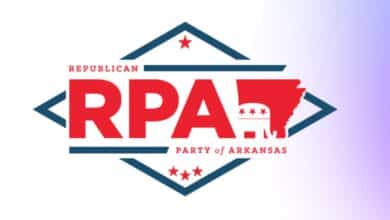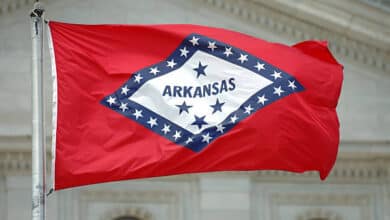Nobody likes to spend time talking about the rules governing their organization’s meetings. Such discussions rarely happen, until members of the organization think the rules are being ignored or interpreted in an odd way that seems to stack the deck against them.
That is what is happening ahead of the Arkansas Republican State Convention and delegates deserve to know the important issue being discussed.
Organizations adopt rules so that all members will be treated fairly. The Republican Party of Arkansas (RPA) has specific rules that are periodically updated by the State Convention or the State Committee. Like almost all other organizations, the RPA adopted the latest version of Robert’s Rules of Order to cover procedures not specifically addressed by its rules. (RPA Rules, Article I, Section 8) The latest version is the Twelfth Edition which is referred to as Robert’s Rules of Order Newly Revised or by the abbreviation RONR.
Recently, a RPA officer issued an interpretation of Robert’s Rules of Order that has become a big deal because it would negatively affect the rights of delegates to the State Convention. An attempt has been made to get the interpretation reversed, but a week has passed and no response.
At issue is whether convention delegates are allowed to consider proposed rules or platform resolutions that were filed timely, but not approved by the appropriate RPA committee and therefore not distributed by the party.
Some party officers have interpreted a section of Robert’s Rules of Order as only allowing the State Convention to consider proposals approved by the committees. It’s a big deal because that interpretation would mean committees, made up entirely of appointees of the Party Chair, could limit what delegates to the State Convention could consider. That would be an odd state of affairs considering the RPA’s own rules declaring the State Convention to be the “final authority in all party matters”. (RPA Rules, Article 1, Sec. 1B)
It is important for delegates to the State Convention to know the arguments on both sides of the issue. Delegates need to know because of the attempt to put blinders on the delegates to keep them from considering anything rejected by a mere committee.
We will try to explain the issues and we will include a link to the RPA rules and to a separate document listing provisions in the Robert’s Rules of Order that are mentioned below.
THEIR ARGUMENT TO LIMIT THE PROPOSALS DELEGATES MAY CONSIDER
Some party officials say delegates may only consider what is listed in the call and they intend not to include proposed rules or proposed platform resolutions unless the proposals were approved by the appropriate RPA committee. They argue the State Convention is a “special meeting.” A special meeting is one called at a time different from a regular meeting and called to address specific issues. In a special meeting you can only consider items listed in the call for the meeting. (RONR 9:13).
Their argument assumes the State Convention is a “special meeting” because the RPA rules do not set a specific day for the State Convention to be held.
ARGUMENT AGAINST RESTRICTING WHAT PROPOSALS DELEGATES MAY CONSIDER (TO ONLY COMMITTEE APPROVED PROPOSALS)
This is a summary of the arguments for allowing all the timely filed proposals to be considered:
- Robert’s Rules of Order has an entire chapter governing “conventions.” (RONR 58:1 through 60:6) The rules on conventions, not the special meeting rules, are what applies to the State Convention. The convention rules were overlooked by those wanting to restrict the State Convention.
- The convention rules in Robert’s Rules of Order specifically allow conventions to consider proposals that have not been approved or reported by the committees. The rules say a convention should always have the right to override a committee’s decision by a majority vote and require the non-approved resolutions to be reported. (RONR 59:78)
- In addition, the idea that an individual or committee can prevent consideration of proposals that were not approved by a committee, is contradicted by rules providing that a convention has final say over its agenda. The program/order of business must be submitted to the State Convention for its approval. (RONR 59:48) Amendment of the program/order of business is debatable and amendable by a majority vote of the delegates. (RONR 59:58). Even after the order of business is approved, it still can be amended, by two thirds vote. (RONR 59:59)
- Even if Robert’s Rules of Order didn’t have specific rules for conventions, the State Convention would not be considered a “special meeting.” By claiming the State Convention is a special meeting, proponents of that position are saying the State Convention never has a regular meeting, only special meetings limited by a third party. Their position is based on their attempt to distinguish the State Convention from a “regular meeting.” Robert’s Rules of Order defines a regular meeting as being a “periodic business meeting” that is “held at weekly, monthly, quarterly, or similar intervals, for which the day (as, “the first Tuesday of each month”) should be prescribed by the bylaws and the hour and place should be fixed by a standing rule.” (RONR 9:1) What proponents of limiting the right of delegates appear to hang their hat on, is the fact that RPA rules do not specify a specific date for State Conventions to be held. But if you continue to read the rules concerning a regular meeting, you will discover that a regular meeting does not have to have an established day. An organization may determine the date of a regular meeting in a call for the meeting. (RONR 9:2) The State Convention is held at a regular interval (every two years in even numbered years). (RPA Rules, Article I, Section 6 A) The specific day for holding the convention is determined by the party by issuing a call for meeting. (RPA Rules Article 1, Section 6 D)
- Under RPA Rules, the State Convention is the final authority in all party matters. (RPA Rules, Article I, Section 1B) The idea that a third party can limit the State Convention conflicts with the State Convention’s status as the final authority in all party matters.
CAUTION
There is a free version of Robert’s Rules of Order online, but don’t use it. The online version is available only because it is so old and outdated that it is in the public domain. The version online is the Fourth Edition published way back in 1915. The current version is the Twelfth Edition and is referred to as Robert’s Rules of Order Newly Revised (RONR).
Most libraries will have the latest edition.
LINKS TO RULES
WHAT IS A WIN?
It doesn’t matter whether some or none of the proposals are passed by the State Convention. It is a win if delegates are allowed to consider all the proposals. It is a win by protecting the State Convention’s status as the party’s final authority. It is a win for the Republican grassroots.
We think it is also a win for the Party Chair because it avoids the appearance that the chair is limiting the power of the State Convention through making all the appointments to committees charged with reviewing proposals.
Conduit News depends on readers like you. Support our cause. Donate today.
DON’T MISS THESE RELATED ARTICLES ABOUT THE UPCOMING STATE CONVENTION
2024 RPA State Convention Business: Part I–Platform Changes Submitted—Will ALL be Heard?
2024 RPA State Convention Business: Part II–Rules Changes Submitted—Will NONE be Heard?
2024 RPA State Convention Business: Part III—Rejected Resolution—Will IT be Heard?






